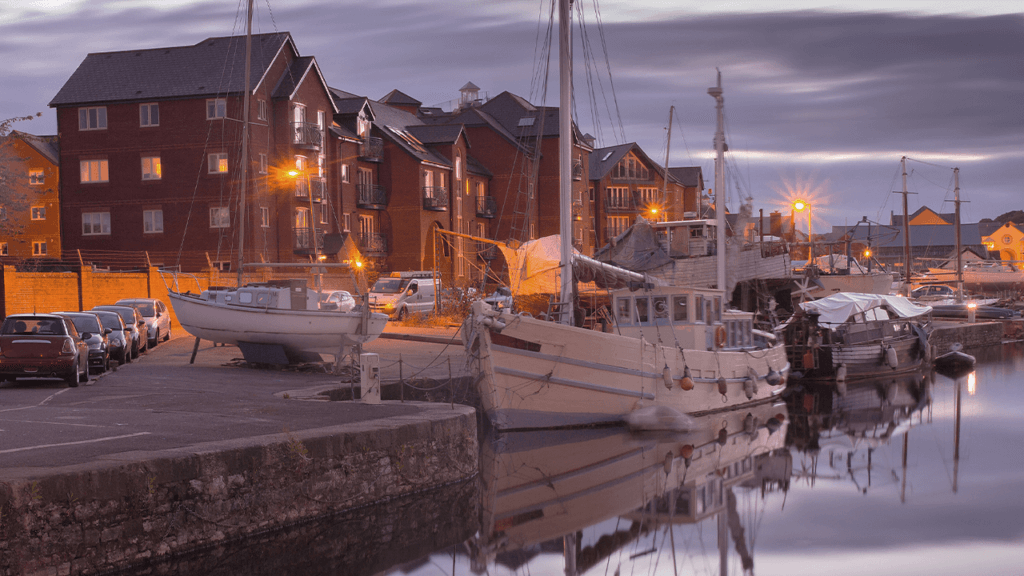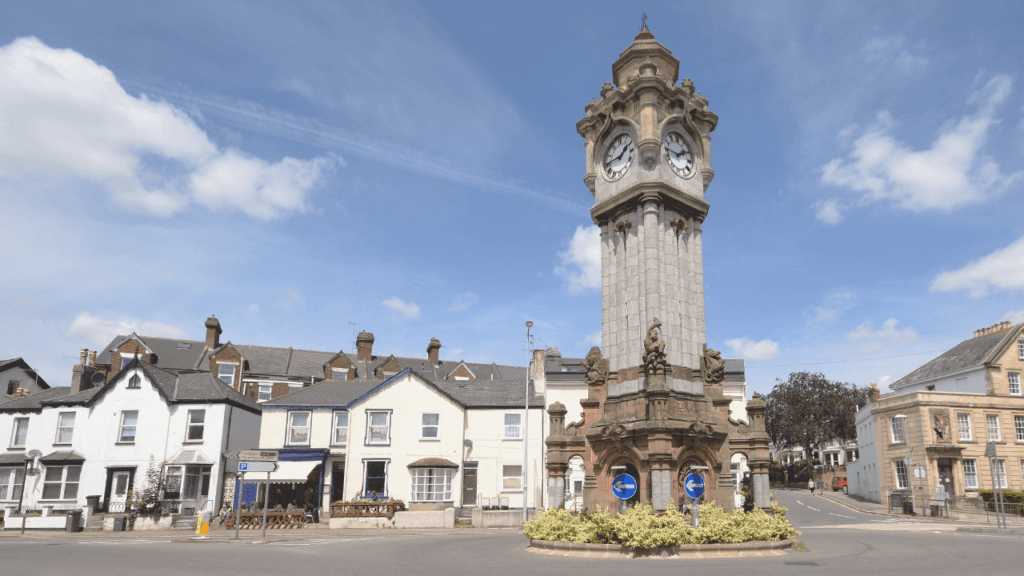
Moving to… Exeter
The region of Devon is full of beauty and charm, and Exeter is no different. The city enjoys a coastal setting deep in the South West of England yet still has excellent travel connections into major cities like London and Birmingham. So if you want to move to a city steeped in history with a picture-perfect coast, Exeter could just be the place for you.
In this guide we’re discovering what you can expect if you’re thinking of moving to Exeter, including its history, the houses and what it’s like living here.
A brief history of Exeter
Exeter was established as the base of Legio II Augusta in Roman Britain and then became a religious centre in the Middle Ages. The city was an affluent place to live thanks to the wool trade, although it suffered decline shortly after the First World War. By the end of the Second World War, much of Exeter was rebuilt, and it’s now a thriving city.
Exeter on a map
Exeter is situated on the River Exe, about 35 miles northwest of Plymouth and 65 miles southwest of Bristol. It falls under the ceremonial and shire county of Devon. London is around 160 miles away.
Moving to Exeter
There is a variety of housing in Exeter, from pretty colourful cottages to new builds in the city centre. Head a bit further out, and you can find family homes in the form of detached and terraced houses in neighbourhoods like Alphington and Pinhoe.
Buying in Exeter
The average house value in Exeter is £306,633, with paid prices £10,000 higher at £316,015. Expect to pay around £458,243 for a detached home, £277,070 for a terraced house and £179,813 for an apartment.
Exeter property prices are considerably higher than the UK national average of £251,000. Over the last 12 months, house prices have increased by 13 per cent and by 19 per cent in the last five years.
There’s a varied selection of estate and letting agents in Exeter, with chain and independent options available to help you find a home.
Renting in Exeter
Exeter won’t make the list for the cheapest places to rent. One-bedroom homes rent for an average of £750 per month in Exeter, with two-bedroom properties fetching in the region of £1,050 per month. For larger homes, expect to pay an average of £1,150 per month.
Cost of living
If you’re moving to Exeter, you can expect to pay similar costs to the UK national average when it comes to everyday living. A meal for one person is around £12, which is in line with the UK average. A cappuccino is about £2.75, and one litre of milk is £0.92.
Utility bills are also lower than the nationwide average. Electricity, heating, cooling, water and waste disposal cost an average of £155. They are around the same price as the national average. Broadband is more in line with the average at around £31 per month.

Life in Exeter
Discover the deep history and scenic sights everywhere you look in Exeter, plus a selection of independent shops, international restaurants and Jurrasic coast beaches. Here are the best things to see and do.
Open spaces
There are plenty of open spaces around Exeter, with Mincinglake Valley Park, Riverside Valley Park and the picturesque Pinces Gardens located on the city’s outskirts. You will also find several excellent beaches nearby.
Transport links
Three main stations serve the city and offer services to London, Birmingham, Bristol, Cornwall, to name a few. Motorists benefit from access near the M5, and there is even an airport in the city that was voted the “happiest in the world“.
Shopping
The city centre is buzzing with shops, both independent boutiques and high-street favourites. Gandy Street is the place to go for quirky independents, while Magdalen Road is often referred to as one of the coolest shopping destinations in the world, thanks to its variety of spots that include ukulele lessons to fresh fish, meat and vegetables.
Eateries
You will find everything in Exeter, from chain restaurants like Nandos and Wagamama to local favourites like Red Panda, a tasty Thai eatery. Head to Mill on the Exe for a pub experience featuring beamed ceilings and waterside gardens overlooking a weir and footbridge.
Nightlife
Exeter’s nightlife spots include modern bars with a range of cocktails. Timepiece Winebar & Nightclub is a lively spot with DJs, bands and salsa nights set over a multi-story layout.
Art & culture
If you’re looking to soak up some culture, pay a visit to Royal Albert Memorial Museum and Art Gallery. Known locally as RAMM, it has exhibitions and events celebrating both local and worldwide history and culture.
Things to do
Exeter Castle, which is also known as Rougemont Castle, is a prominent landmark built into the northern corner of the Roman city walls. There’s also the medieval Exe Bridge, which was built in the 13th century.
What’s not to like?
As far as cities go, Exeter is relatively small and doesn’t have a high population. For some, its lack of residents might be a bonus. However, sometimes it can feel more like a large town than a sprawling city.
Who lives there?
Exeter has a population of just over 128,000 and a median age of 38.

Typical broadband speeds
The average broadband speed is 31mbps in Exeter, which is less than half the speed of the UK national average of 67mbps.
Crime rates
Crime rates in Exeter average 5,306 per year and are lower than the national average of 10,000.
Thinking of moving to Exeter?
Get even more information about moving to Exeter with Move iQ’s property report, which provides in-depth information on this city in Devon so you can get to know the area before you move there.
Last Updated: November 1st, 2024







